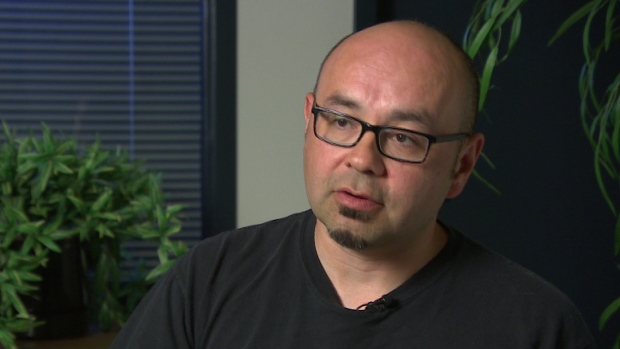‘If the feds aren’t going to do it, somebody’s got to do it,’ says Rick Harp, who started campaign

reposted from CBC News, June 30, 2015
A Winnipeg man wants to raise $10 million to build an all-weather road that would connect the Shoal Lake 40 First Nation, which is on a man-made island, to the outside world.
Rick Harp says he hopes the public will do what the federal government won’t — fund construction of the road, dubbed Freedom Road by Shoal Lake 40 residents.
“If the feds aren’t going to do it, somebody’s got to do it. Let’s step forward,” Harp told CBC News in an interview.
“We just had the Truth and Reconciliation Commission release their report. [We] want to give life to that spirit of reconciliation and do right by Shoal Lake 40.”
His crowdfunding campaign, launched on Monday afternoon, has raised more than $5,000 to date. People have until Aug. 29 to donate.
The Shoal Lake 40 First Nation, which straddles the Manitoba-Ontario border, was cut off from the mainland a century ago when an aqueduct was built to supply Winnipeg with fresh water.
Under boil-water advisory for 17 years
While clean water flows down the aqueduct, murky water is diverted to the First Nation.

The community has been under a boil-water advisory for 17 years and has no all-weather road connecting it to the mainland.
Building a permanent, all-weather road would cost an estimated $30 million split between three levels of government.
First Nation members sobbed on Thursday after the federal government refused to commit to help fund the construction of Freedom Road.
- Shoal Lake reserve residents weep as Ottawa balks at funding road construction
- Pressure mounts to build road for Shoal Lake 40 First Nation
- Shoal Lake 40 ‘Human Rights Violations Museum’ highlights water problem
The City of Winnipeg and the Manitoba government have committed to fund part of the costs of building the permanent road, but Natural Resources Minister Greg Rickford refused to say whether Ottawa would put up its one-third share.
Instead, Rickford reiterated the federal government’s $1-million pledge to a design study for the project.
“Something snapped in me,” said Harp.
“I just said, ‘This is not right. This can’t stand. What can I do? Even though I want my government to do something, what can I do?'”
With files from The Canadian Press








